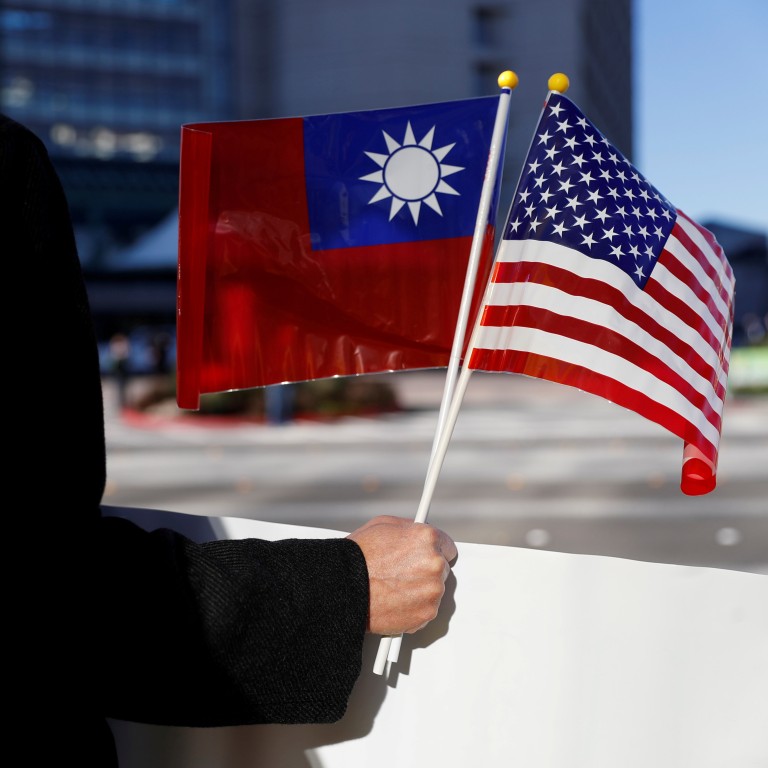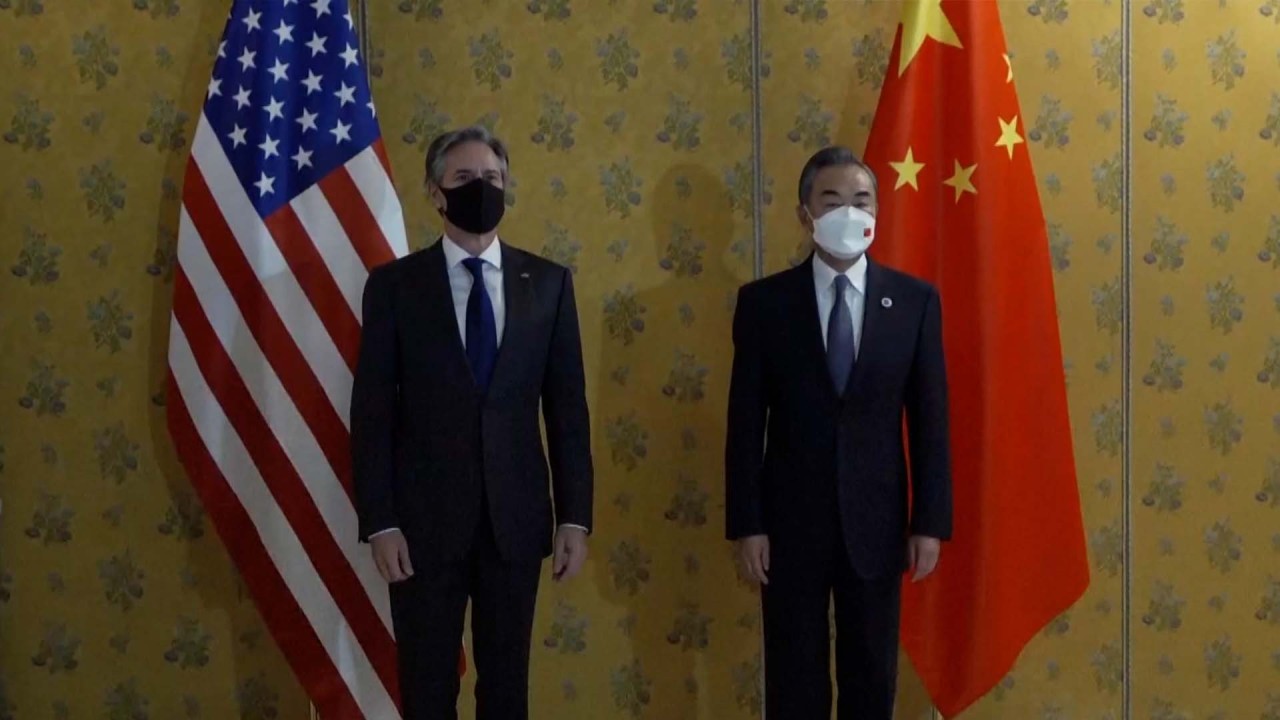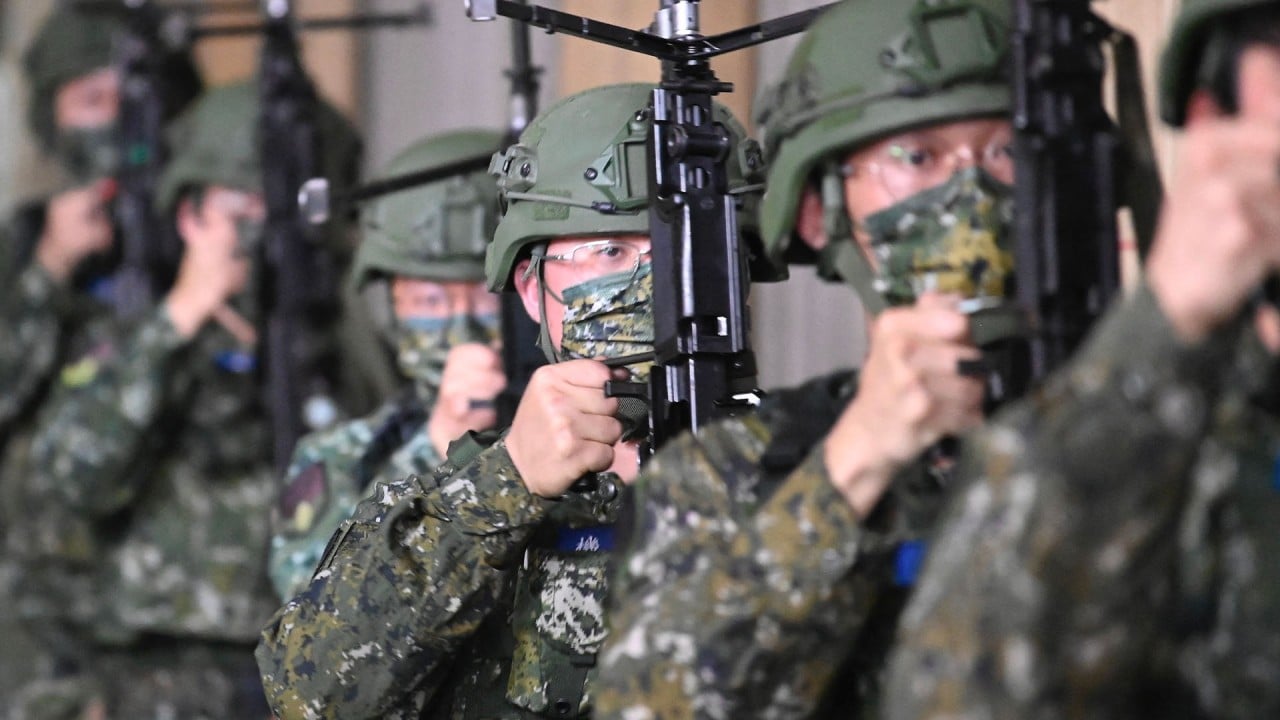
US State Department edits Taiwan fact sheet, angering Beijing for ‘hollowing’ one-China policy
- Among changes published, the new fact sheet no longer included a declaration of its long-time position that the US ‘does not support Taiwan independence’
- Beijing’s foreign ministry spokesman says ‘political manipulation to try to change the cross-strait status quo would never succeed’
In an update of the fact sheet on US-Taiwan ties posted on its website on Thursday, the State Department has removed a portion of the first paragraph stating that in the Joint Communique signed with Beijing in 1979 “the US recognised the government of the People’s Republic of China as the sole legal government of China, acknowledging the Chinese position that there is but one China and Taiwan is a part of China”.
It also deleted a statement from the second paragraph of the 2018 fact sheet declaring its long-time position that the US “does not support Taiwan independence”.
Instead, in the new version, the State Department lauded Taiwan as a leading democracy and a technological powerhouse, saying it was a key US partner in the Indo-Pacific, sharing similar values, deep commercial and economic links and strong people-to-people ties.
In mentioning the one-China policy, the new version noted that its policy was “guided by the Taiwan Relations Act, the three US-China Joint Communiques and the Six Assurances” for Taiwan.
“Though the United States does not have diplomatic relations with Taiwan, we have a robust unofficial relationship as well as an abiding interest in maintaining peace and stability in the Taiwan Strait,” the new version said, adding that the US was committed to helping the island “maintain a sufficient self-defence capability”.
While the updated version still contains the statement that the US calls for “the peaceful resolution of cross-Strait differences”, it stresses this is “consistent with the wishes and best interests of the people on Taiwan”.
In the new version, there is no longer any mention of the US opposing unilateral changes to the status quo by either side or encouragement of both sides to continue their constructive dialogue on the basis of dignity and respect.
The changes to the fact sheet prompted a furious response from Beijing, which accused the US of distorting history and facts and trying to hollow out its one-China policy.
“The US had made solemn commitments on the one-China principle in the Sino-US joint communiques and its changes to the fact sheet on US-Taiwan relations are a petty trick to hollow out the one-China principle,” Chinese foreign ministry spokesman Zhao Lijian said in a news conference in Beijing on Tuesday.
He said “political manipulation to try to change the cross-strait status quo would never succeed” and would merely “draw fire to itself”.
Taiwan invited to Biden’s second virtual Global Covid-19 Summit
Beijing considers Taiwan its territory that must be taken under control, by force if necessary. It has repeatedly warned the US and other countries against having official contact with the island.
After more than a year in office, the Biden government has faced criticism from Republicans and others for lacking a formal strategy for dealing with Beijing, which has remained the US’ main strategic rival since Biden’s predecessor Donald Trump took office.
Asked to comment on the updates and why the changes were made, Ed Dunn, a spokesman for the American Institute in Taiwan – Washington’s de facto embassy on the island – maintained the usual US line that Washington’s “one-China policy has been guided by the Taiwan Relations Act, the three Joint Communiques and the Six Assurances for over four decades”.
“Our commitment to Taiwan is rock solid and contributes to the maintenance of peace and stability across the Taiwan Strait and within the region,” he said in a statement sent to the local media on Tuesday.
Taiwan was careful in its response to the changes. Its foreign ministry spokeswoman Joanne Ou said the island would continue to deepen relations with the US, strengthen its self-defence capabilities, uphold its freedom and democratic system and promote cross-strait peace and stability in the region.
Lawmakers of the independence-leaning, ruling Democratic Progressive Party, however, were upbeat.
“Sometimes, by deleting those references, it is more powerful when it comes to the US declaring its support for Taiwan,” said DPP legislator Cheng Yun-peng.
DPP legislator Lin Chun-hsien said Beijing’s one-China principle was different to the US one-China policy. “The US used to turn a blind eye to the Chinese explanation of its one-China principle and, by removing those statements, it now clearly defines its one-China policy that no longer contains the part ‘Taiwan is a part of China’,” he said.
Taiwan’s KMT opposition party reopens US office
Former Taiwanese foreign minister Chen Chien-jen, however, said although there were some adjustments in the wording, the one-China policy was still on the fact sheet.
He said he was not surprised by the changes given that US relations with Taiwan had become closer in recent years and that Beijing had become not only a competitor but a threat to the US.
“But as long as the US keeps the one-China policy, it has not crossed the red line,” he said.



